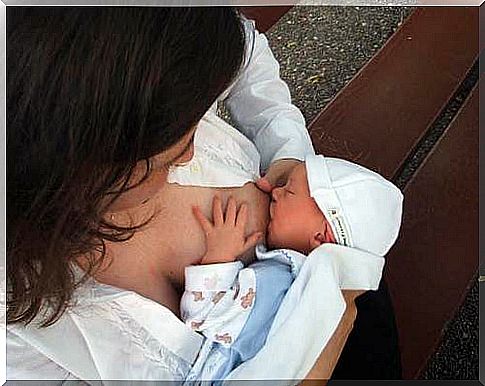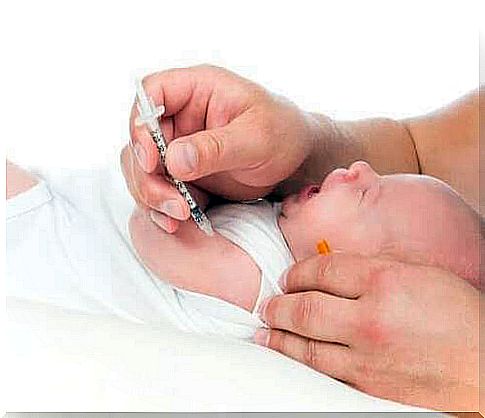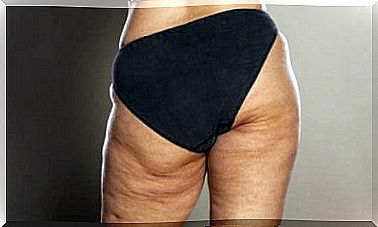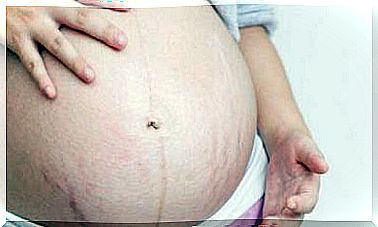The Importance Of Vitamin K For Babies

There are many reasons why a baby may be born with a low level of vitamin K. One of them is because it does not cross the placental barrier easily. This compound is very important for the life of the baby because it can prevent hemorrhagic disease of the newborn (called vitamin K deficiency hemorrhage). Let’s see together the importance of vitamin K for newborns.
Although it is a very rare condition, it can occur with greater incidence in babies born after complicated births, caesarean deliveries, premature babies, and mothers who have had to take medications for clotting, epilepsy and tuberculosis during pregnancy.
Timely administration of this vitamin in infants – the deficiency of which can be determined through routine medical examinations – can save a baby’s life, as low levels can cause internal or external bleeding in the ears and nose.
One milligram of vitamin K can prevent the newborn from experiencing internal bleeding, which in many cases is unnoticeable. When the lack of this vitamin is detected through the relative medical tests, one intervenes by administering one milligram of vitamin K intramuscularly. Read on to understand the importance of vitamin K for infants.

Breast milk is rich in vitamin K.
Vitamin K deficiency has many solutions and one of them is breastfeeding. Breast milk is rich in this vitamin. This is why the doses that are normally given to the baby are very low and have been specially created to prevent bleeding.
The first milk that is born from the mother’s breast, called colostrum, is very rich in nutrients and vitamin K. This is why breastfeeding also reduces the risk of bleeding due to the lack of this vitamin. It is essential for the baby to take colostrum at birth and for his mother to make sure all milk is expressed, as the last milk is the one that contains the most vitamin K.
Powdered milk also contains good amounts of vitamin K, just to prevent bleeding in the baby. However, the ideal is that the baby during the first months of birth is exclusively breastfed and with mother’s milk.
Colostrum prevents bleeding
The administration of vitamin K is one of the guidelines normally followed by health professionals present at a birth. Based on various studies, doctors recommend applying a single injection between the first 2-4 hours of life. This is the only painful procedure for the baby after birth.
Although vitamin K can be given by injection or orally with a few drops, specialists recommend the injection to ensure that the baby does not suffer from bleeding.
This injection can be given when the mother is breastfeeding her baby, because skin-to-skin contact helps the baby to assimilate the pain of the sting.
-Anonymous-
Importance of Vitamin K for Newborns
In case of vitamin K deficiency, the injection is given to avoid hemorrhagic disease of the newborn, which although rare, can cause very serious consequences for the baby. That is why the injection is so recommended.
This disease is characterized by a bleeding pattern that the baby’s body cannot stop naturally, due to a lack of vitamin K.
Hemorrhage usually affects various parts of the body such as the umbilical cord or the digestive system and occurs in three different forms depending on the time of onset (early, classic or late).

The most common form, the classic one, occurs between 2 and 7 days of life and affects 0.25-1.7% of newborns who have not received vitamin K prophylaxis during delivery. There are no confirmed cases in children who have received prophylaxis, as revealed by the medical studies that have been published on this topic.
It is also important to know that vitamin K is essential for the formation of factors that contribute to blood clotting.
This vitamin is naturally synthesized by our intestines. In addition, it is also present in a wide range of foods such as green leafy vegetables, liver, eggs, soybeans and some fruits such as kiwifruit.









